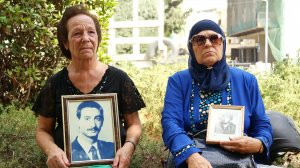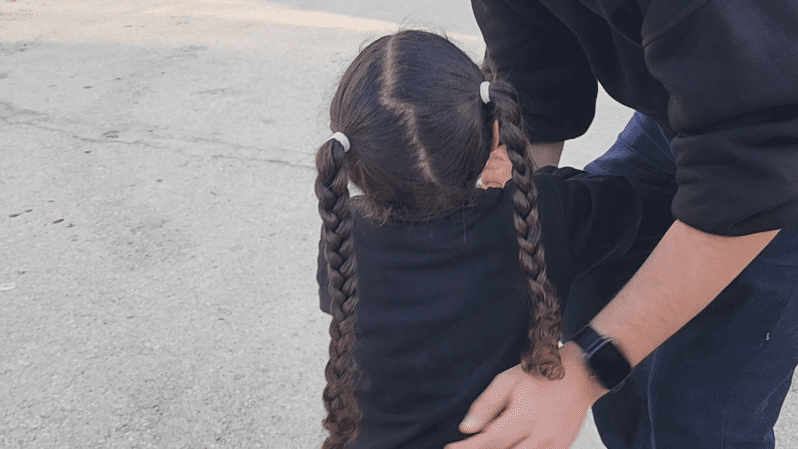I Had No Choice But to Make This Movie

In 2009, when I began work on the film eventually titled “In This Land Lay Graves of Mine”,[1] I was not aware that I would be making a film that “embraced” the memory of the Lebanese Civil War. The following constituted the film’s starting point: the idea of the existence of a war over [the control] of real estate, the demographic fears among Lebanese sects, and sectarian struggles over what is referred to as “the land’s identity”. Over five years, the film grew to become a testament to one of the chapters of a war that was labeled as sectarian.
At the start of my research, I looked deep into the past in order to study demographic movement that had taken place across this land, to establish that it was constantly shifting throughout history. At that point, I had wanted, through the film, to express my rejection of the logic behind determining “the land’s identity”.
At the same time, and throughout the first stage of developing the film’s script, the memory of the issue of “identity-based kidnappings” (as it was called during the civil war) resurfaced. I chose to approach the subject of the struggle over the land’s identity through the narratives and stories of individuals who had been subjected to these abductions at the time. It was from there, from the stories of those who were taken and never returned, that I began my journey into the memory of the war. Gradually I found myself gripped by an obsession with this memory. I began living in a constant state of searching for the past, and for those who carried the past within them, and who lived in the past and with it. I began searching for its traces in the present, and looking for lines of demarcated frontiers, and for the location of checkpoints and abductions.
And so, on the surface, the film moved beyond its original subject – the real estate war, demographic fears, and the sectarian segmentation we are experiencing today. I realized that my own sympathies were taking me toward a film that was going to be about those who had been abducted, however, and that I had to find another way into the subject of sectarian segmentation.
Suddenly, what I was looking for became self-evident: displacement on sectarian grounds. Thus, I “reassured” myself that I would not have to abandon my obsession with the memory of the war. I could indulge in it further, in fact, and integrate a new infatuation: the link between history and geography.
And so, by searching for testimonies of those who had faced displacement, I found myself drawing a “topography of war”. In this stage of my work on the film, I had begun to live entirely in the past, in memory, and in history. Every day, I would return home carrying images and books about the war. Every time I encountered someone, whether or not I knew them, I would ask them what region they were from, if they had lived through the war, if they had been displaced, and if they’d fought. I slept beside lists of the names of the victims of the Mountain War [a major episode of the civil war], or Alan Ménargues’s Secrets of the Lebanese War and the novels of Rabee Jaber, Confessions and Birds of the Holiday Inn.
I was attached to these books because they represented the few written sources on the Lebanese Civil War, whose history we were barred from writing by official will – whose approval of the general amnesty law was tantamount to the establishment of a law of silence and the repression of memory. All along I had felt that there was something being hidden from me about what had happened during the war. I personally suffered because my own memories connected to the war had nearly been erased; I came to feel the loss of something essential, the lack of which kept me from living normally.
The solution was to take refuge in people’s testimonies, in their stories, and in their narratives of the war to help rebuild my my own memory, and to understand the reasons for the segmentation and fear that we are living with today. Through them, I was not only looking for my personal memory. I needed collective memory in order to find myself and my place in it – my extension into history without which I cannot live in the present, particularly given that my presence in this country is an expression of ongoing pain.
When the film and its contents took on a cinematic form, and the filming began, I realized that I had entered a minefield with explosives that had been planted by warlords to keep us from entering the range of memory. But I took a chance and entered. Because, simply put, I cannot live without memory. Today, I know that I had no choice but to make this film.
This article is an edited translation from Arabic.
__________
[1] By order of the Minister of the Interior, the film was banned from being screened. The producer is currently appealing to the courts to invalidate this decision.



